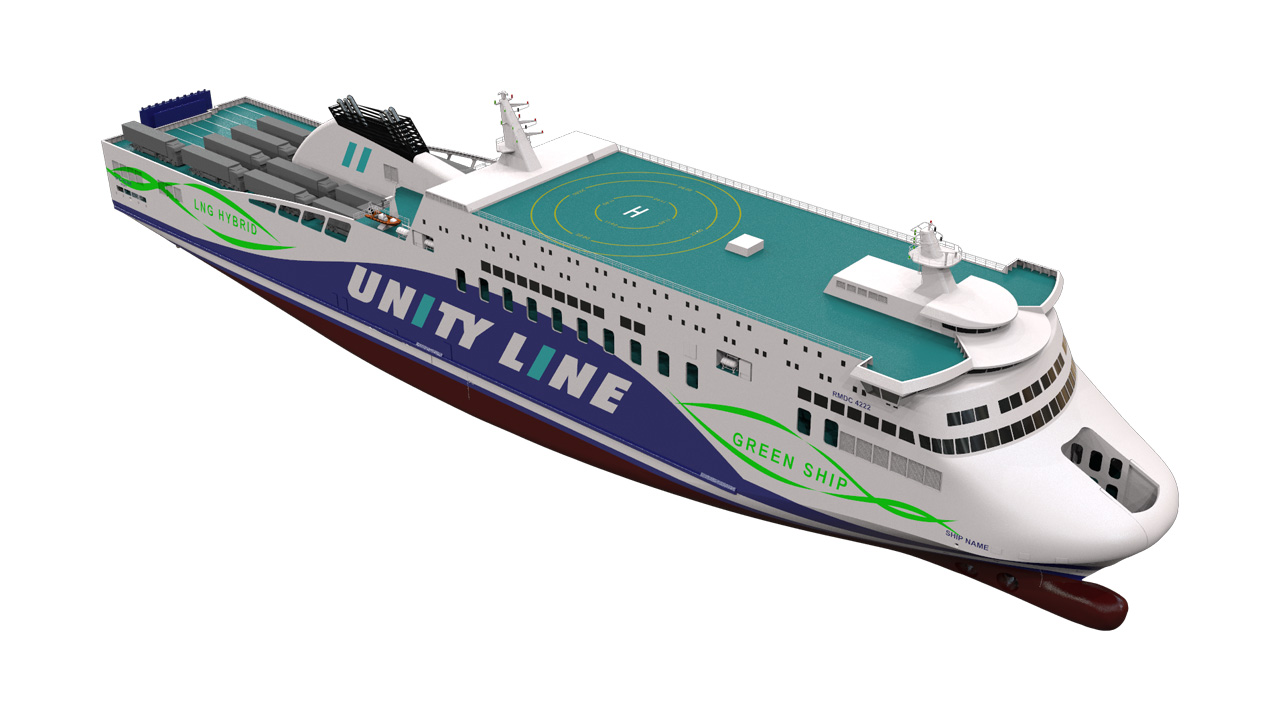- ABB will supply complete power, automation and propulsion solutions for three hybrid-electric passenger and car ferries to operate in the Baltic Sea
- End-to-end solution comprising batteries, Azipod® electric propulsion and shore power connection will optimize the new ferries for environmentally friendly operations and passenger comfort
- The integrated solution system allows lower power output to be installed than for comparable ships, reducing emissions significantly
ABB has secured a large order from the Polish shipbuilder Remontowa Shiprepair Yard S.A. to supply integrated power, automation and propulsion solutions to three large passenger and car ferries to operate in the Baltic Sea. The 195-meter-long ferries will each have capacity for up to 400 passengers and 200 trucks and will be delivered to the Polish ferry company Polskie Promy one apiece in 2025, 2026 and 2027.

The order was booked in the first quarter of 2022. Financial details of the contract were not disclosed.
The Baltic Sea has some of the densest maritime traffic in the world, with about 2,000 large ships sailing in its waters at any given time1. The International Maritime Organization – a United Nations agency responsible for regulating shipping – has designated the Baltic Sea as an Emission Control Area with stricter controls to minimize the environmental impact from ships.
Increased electrification and energy efficiency will play an important role in helping decarbonize maritime transport. As the foundation for ship electrification, electrical propulsion allows the full integration of power systems and equipment on board, offering significant gains in safety, efficiency and sustainability for the new ferries.
Each of the ferries will be equipped with two 7.5 megawatt Azipod® electric propulsion units that will help achieve a high degree of maneuverability and efficiency in harbor operations. Azipod® technology has a proven ability to cut fuel consumption by up to 20 percent compared to traditional propulsion. Independent research2 indicates that Azipod® propulsion offers fuel and emissions savings for ferries which could amount to nearly $1.7 million and 10,000 tons of CO2 emissions per ship per year.
By integrating multi-fuel engines with battery power, ABB’s Power and Energy Management System (PEMS™) balances the use of the different energy sources onboard, enabling further gains in operational efficiency and reducing emissions as a result.
Conventionally, a ship approaching port engages an extra engine as a failsafe back-up, which is sub-optimal in terms of fuel efficiency. The hybrid solution uses batteries to provide this redundancy. Integrated power is so responsive that larger ferries can achieve equivalent performance using lower installed power than that required by comparable ships, ensuring reduced emissions in any circumstances.
The three ferries will also utilize ABB’s shipside shore connection to access plug-in shore power, enabling further emission reductions, as well as benefit from remote equipment monitoring and diagnostics for enhanced passenger and ship safety.
“With ABB, we have full confidence that all systems will be seamlessly integrated for maximum operational efficiency and sustainability,” said Bartosz Znyk, Project Director, Remontowa Shiprepair Yard. “In addition, the ease of installing Azipod® units significantly increases build efficiency and flexibility in project scheduling, supporting our shipbuilding process.”
“We take great pride in our collaboration with Remontowa and are delighted to support them in their strategy for environmentally friendly ferries,” said Juha Koskela, Division President, ABB Marine & Ports. “This project presented us with an excellent opportunity to showcase our abilities as a single system, bridge-to-propeller integration provider.”
Demand for Azipod® propulsion continues to grow in the global ferry industry, which carries around 4 billion passengers, 370 million vehicles every year. Ship owners are increasingly choosing Azipod® technology that offers 360-degree rotation of podded propulsors, increased reliability, reduced vibrations and more lane meters for vehicles onboard due to the location of the system outside the hull.